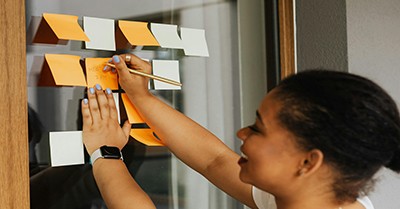Documentation is more than a compliance task; it’s a powerful tool for reflection, connection, and responsive programming. Yet with the increasing demands on educators’ time, it’s vital to reaffirm a core principle: educators are trusted professionals, capable of discerning which experiences are worth documenting and reflecting on.
What Does “Relevant” Mean?
Relevance isn’t about ticking boxes. It’s about identifying moments—planned or spontaneous—that offer insight into a child’s:
- Interests, strengths, and emerging skills
- Emotional well-being and relationships
- Cultural identity and authentic voice
- Learning dispositions and developmental needs
These moments might unfold during a structured activity, a spontaneous peer interaction, or a quiet moment of curiosity. The key is not the format, it’s the meaning.
The Role of Professional Judgement
Professional judgment is the educator’s compass. It guides decisions about:
- What to document: Not every moment needs recording. Educators can ask, “Does this experience deepen my understanding of the child or group?”
- How to reflect: Reflection might take the form of a learning story, a photo caption, a team discussion, or a child-led conversation.
- What comes next: Documentation should inform future planning, not just archive the past.
This approach honours educators as critical thinkers, not passive observers.
Linking to Future Learning
When documentation is intentional, it becomes a springboard for:
- Adjusting the educational program to meet evolving needs
- Scaffolding learning through targeted experiences
- Engaging families in meaningful dialogue
- Building emotionally intelligent, trauma-informed practice
What to Document and Reflect On
-
Start with the experience
Has something occurred—planned or spontaneous—that feels worth noticing? -
Ask: Is it meaningful?
Does the moment reveal something about:- The child’s interests, strengths, or needs
- Relationships, emotional well-being, or social development
- Emerging skills or learning dispositions
- Cultural identity, voice, or worldview
-
Check for relevance
Is the experience connected to:- Current learning goals or curriculum outcomes
- Group dynamics or the educational program
- Family engagement or community context
-
Consider the impact of documenting
Will recording this moment help:- Shape future planning or intentional teaching
- Spark reflective practice or team dialogue
- Strengthen child or family connection to learning
-
If yes to all above, document & reflect.
Use your preferred format (e.g., learning story, photo caption, child voice snippet).
Link to EYLF/MTOP outcomes and consider next steps. -
If unsure, use professional judgment.
You might choose to reflect privately, discuss with colleagues, or simply hold the moment in memory.
Not all meaningful experiences require formal documentation. -
If no, do not document
Celebrate the moment, but there's no need to record it.
Trust your insight and balance workload with impact.
In a sector built on relationships, trust, and emotional safety, documentation should feel empowering, not exhausting. By centering professional judgment, we restore dignity to the process and reaffirm what educators already know: they are the experts in their context.
Further Reading
Open-Ended Observations
Q: How Do I Write An Observation?
Simplified Observation & Planning Cycles
Q: How Do I Come Up With Extension Ideas During Observations
Observations in Childcare
Different Types Of Observation Methods
Anecdotal Records In Childcare
Q: What Is A Sociogram
Practical Examples Of Anecdotal Record Observation For Babies
Q: What Is A Narrative Observation
Event Sample Observations In Childcare
Q: What Is A Jotting Observation?
Jotting Observations In Childcare
Writing Observations For Babies
